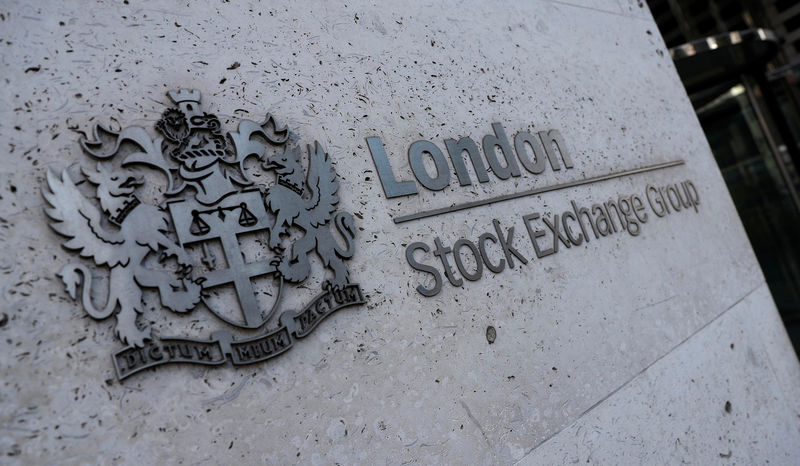By Marc Jones
LONDON (Reuters) - World stocks were stuck in their worst run of the year and bonds were on the rise on Thursday, as investors waited for confirmation that the European Central Bank will start shoveling cheap cash at the euro zone again.
The ECB was holding its second meeting of the year, and with the euro almost motionless and stocks (EU) suffering from the same growth nerves that will see the central bank chop its in-house forecasts later, markets were poised.
Europe's STOXX 600 index retreated further from five-month highs as MSCI's 47-country benchmark world index dropped for a fourth straight session, setting its longest losing streak since December's rout.
Italy's government bonds rallied to a 7-month high though its banks, which used the biggest share of the previous round of cheap ECB loans, failed to add to the highs hit in the previous session.
The ECB's post-meeting statement is due at 1245 GMT. A return to what was once its flagship crisis-fighting tool would be a wrenching change of direction for the ECB just months after it wound down its 2.6 trillion euro ($2.94 trillion) QE program.
But Head of investments at UK fund manager Hermes, Eoin Murray, said he wondered how much impact such measures, or even another round U.S. Federal Reserve stimulus, would have, considering the potency has tended to wane with every new round in recent years.
"I just don't think it will have the power to get the economy to the point of takeoff," Murray said. "The question is, is the world moving toward Japanification?" referring to Japan's decades-long struggle to revive its economy.
Europe's caution also came after Asia had struggled overnight.
Japan's Nikkei fell 0.7 percent, while Hong Kong's Hang Seng shed 0.9 percent and Chinese blue-chips snapped a four-day winning streak as the boost from new stimulus plans there ran into the sand.
Wall Street's main indexes had fallen for a third straight session, with the S&P 500 posting its biggest one-day decline in a month, as investors sought reasons to buy after a near 20 percent rally since the start of the year.
Futures markets were pointing to another day in the red too.
"For some time, markets had been pricing in good news, namely that the talks between the U.S. and China will likely go well," said Tatsushi Maeno, senior strategist at Okasan Asset Management. "Now markets are having a pause."
Adding to concerns about the talks was data that showed the U.S. goods trade deficit surged to a record high in 2018 as strong domestic demand pulled in imports, despite the Trump administration's "America First" policies aimed at shrinking the gap.
Other U.S. data out on Wednesday had suggested some slowing in the labor market, though the pace of job gains remains more than enough to drive the unemployment rate down and Friday's "non-farm" carry far more weight anyway.
(Graphic: Impact of TLTRO on Italian and Spanish banks link: https://tmsnrt.rs/2VH5AZw).
TIME TO TLTRO?
In the currency market, the euro hovered near a two-week low at $1.1304 ahead of the ECB and its expected news on its cheap long-term loans for banks, known more formally as Targeted Long-Term Refinancing Operations (TLTROs).
If ECB officials had needed any more convincing, the European Union's statistics office, Eurostat, on Thursday confirmed euro zone GDP rose just 0.2 percent quarter-on-quarter in the final part of last year.
It also revised down to 1.1 percent the year-on-year number from its original 1.2 percent estimate made late last month.
The dollar was steady at 111.70 yen, just off a 2-1/2-month peak of 112.135. The dollar index, which measures the greenback against a basket of six of its peers, barely moved at 96.820.
The Canadian and Australian dollars languished near two-month lows after it became increasingly clear on Wednesday that both country's would either keep interest rates steady or even lower them this year.
Adding to the Aussie's woes was data on Thursday showing local retailers suffered another bleak month in January though the Aussie last changed hands at $0.7042, up 0.1 percent on the day.
Renewed Brexit uncertainty, meanwhile, pushed the pound away from an 8-month to below $1.32 after meetings between EU diplomats and British Prime Minister Theresa May's chief lawyer, Geoffrey Cox, looked to have gone badly.
EU sources told Reuters they were now skeptical a reworked Brexit transition deal -- that needs to solve the deep political complexities of the border between Ireland and Northern Ireland -- can be agreed before a crucial March 21-22 summit that was supposed to seal the deal.
"Markets are getting conflicting signals from lawmakers in Britain and the negative news flow from Brussels on the negotiation process, and that is keeping the pound in a tight range," said Nikolay Markov, a senior economist at Pictet Asset Management.
The gloomier outlook wasn’t confined to Europe. Full-year 2019 GDP contractions of more than 1 percent were forecast for last year’s emerging market casualties Turkey and Argentina, whose currencies are again on the slide.
MSCI's emerging market equity index fell back to its lowest level in a couple of weeks on Thursday and its currency equivalent slipped for the second day.
Among commodities, oil edged up amid ongoing OPEC-led supply cuts and U.S. sanctions against exporters Venezuela and Iran, although prices were prevented from rising further by record U.S. crude output and rising commercial fuel inventories.
Brent crude futures were last at $66.83 per barrel, up 84 cents or 1.2 percent from their last close, while U.S. West Texas Intermediate (WTI) futures were at up 60 cents at $56.82 per barrel.
